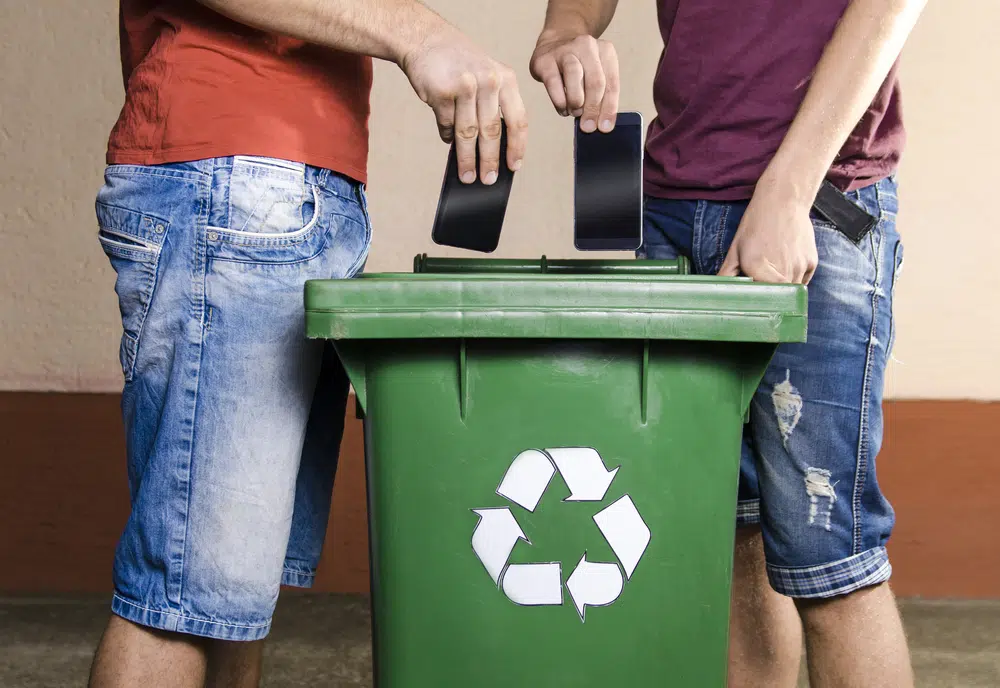How to Recycle E-Waste to Protect Your Data and Identity
Home Help Center How to Recycle E-Waste to Protect Your Data and Identity

- The proper disposal of e-waste – old electronic devices that are no longer used – is a priority, particularly for protecting personal data. The Identity Theft Resource Center (ITRC) reported 78 data compromises in 2020 around “physical attacks”; 52 percent of them from device theft and improper disposal.
- E-waste puts personal information at risk and can have environmental impacts, too. It is why individuals need to adopt good e-waste solutions by educating themselves on the issue, re-evaluating their needs for more electronics and safeguarding their information.
- Most people do not know how to recycle e-waste. Individuals should reuse electronics, if possible, and donate their old devices to be recycled if not. When people get rid of old electronics, they should put all of the data on a backup system and then wipe the device clean of personal information.
- For more information, or if you believe you are a victim of identity theft, contact the ITRC toll-free by phone (888.400.5530) or live-chat. Just go to www.idtheftcenter.org to get started.
According to the Identity Theft Resource Center’s (ITRC) 2020 Data Breach Report, there were 78 “physical attacks” in 2020. Device theft and improper disposal (which includes electronic devices) made up 52 percent of the attacks. The Verizon 2020 Data Breach Investigations Report finds more than one thousand cases of loss involving mobile devices in 2019.
As technology continues to evolve, users and manufacturers are finding more ways to keep safety, environmental impact and security measures in mind – which revolve around how to recycle e-waste. Issues range from the risk of fire from batteries, devices being sent to landfills, and disposal of information that could lead back to a user’s account and put them at risk of identity theft.
What Are E-Waste Solutions?
There are a handful of e-waste solutions consumers should keep in mind.
- Education: People should learn about the dangers of e-waste and what they can do about it.
- Re-evaluating the need: One e-waste solution is to minimize e-waste itself. Do you need that extra device? What are you doing with your devices once you are done with them? Are you reusing electronics? Re-evaluating your need for electronics can help cut down on how many devices end up in a landfill.
- Safeguarding information: Before you dispose of any electronics, you should make sure you save your data on a backup system or hard drive and then wipe the device clean. That way, no one can access your files if the device is improperly recycled or ends up in the wrong hands. If you are getting rid of a phone, do a factory reset to restore the phone to “empty status.” By taking these steps, you are protecting your personal information.
How to Recycle E-Waste
Instead of discarding electronics, the best e-waste solution is to reuse or recycle devices. Local governments are increasingly hosting e-cycling initiatives. These programs keep electronics out of landfills and ensure devices are wiped clean of all user data. You can search online for e-cycling centers near you before disposing of electronics, including IoT devices and medical devices.
Many device manufacturers also accept old devices to be refurbished or recycled and provide credit toward a new device. Some will take a device from any manufacturer for recycling. Check with your device maker to see if they offer a recycling program.
Contact the ITRC
It is vital everyone does their part to help address e-waste to protect the environment and people’s personal information. If you have questions about how to recycle e-waste, other e-waste solutions, or you believe you are the victim of identity theft, contact us. You can speak with one of our expert advisors toll-free by phone (888.400.5530) or live-chat. Just go to www.idtheftcenter.org to get started.
How much information are you putting out there? It’s probably too much. To help you stop sharing Too Much Information, sign up for the In the Loop.
Get ID Theft News
Stay informed with alerts, newsletters, and notifications from the Identity Theft Resource Center

